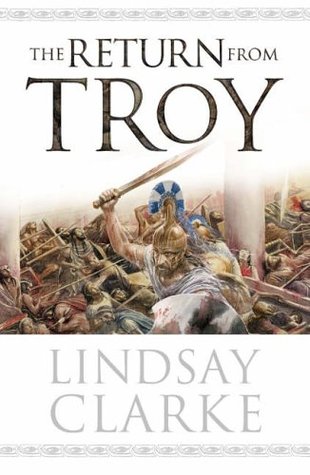

 |

|

The average rating for The Heroes Return based on 2 reviews is 3.5 stars.
Review # 1 was written on 2014-10-26 00:00:00 Kristen Schlott Kristen SchlottThis engrossing, most imaginative novel was much more than a simple retelling of the Odyssey. The author used elements from that epic, but it was Odysseus's interior journey [which he doesn't realize until late in the novel] that was important. There were many psychological undertones with the main theme the attainment of wise love and various facets of love: constant, inconstant, lust as a counterfeit of love... As Odysseus and other characters come to see--the whole Trojan War shows the uselessness and futility of warfare. All that time was spent; so many were killed or injured, and in the end no one had anything to show for it. The Trojan War has ended and Odysseus is struck with self-loathing, remorse and guilt for his part in conceiving the Wooden Horse and the conflagration, rapine, and looting that follows. All through the story, we see him suffer painfully in his mind. Although he desires to return to his wife and son on Ithaca, he has to overcome physical obstacles: a monstrous sea-storm, shipwreck, overweening curiosity of his crew, detours he's forced to make. Then he does arrive home finally, disguised, and along with Telemachus, massacres Penelope's suitors. There were gods and goddesses in the story, but the incidents, although based on the Odyssey, were all given very human explanations. I see where the stories of others such as Menelaus, Telemachus, Agamemnon, Orestes touched on Odysseus, but sometimes the extensiveness of these stories made the novel disjointed and got into the way of the main narrative. Beginning with his time spent with Circe and his journey to the Underworld, we see his spiritual or psychological journey. I thought his visit to the Underworld owed a lot to Virgil's Aeneid. The metaphor of the oar into winnowing fan expressed maturation very well. Speaking to Phemius the Ithacan bard: "Penelope smiled. 'Haven't I said it [Odysseus's dream] formed the root of our life together? Where he had once used only the oar to steer his life, always questing outward, not searching for what lay hidden within, now he had begun the use of the winnowing fan. He sorted the wheat from the chaff in the granary of his heart; and then, as Hermes had bidden him he freely made an offering of the wild energy that had driven him for so long. In so doing he became a deep-rooted tree. After that, there was no more talk of roving.' " |
Review # 2 was written on 2014-10-26 00:00:00 Kevin England Kevin EnglandIt was okay. Didn't enjoy it as much as the first book. However, I always did prefer the Illiad to the Odyssey, so it was almost a given that this book wouldn't be quite as enjoyable for me. |
CAN'T FIND WHAT YOU'RE LOOKING FOR? CLICK HERE!!!